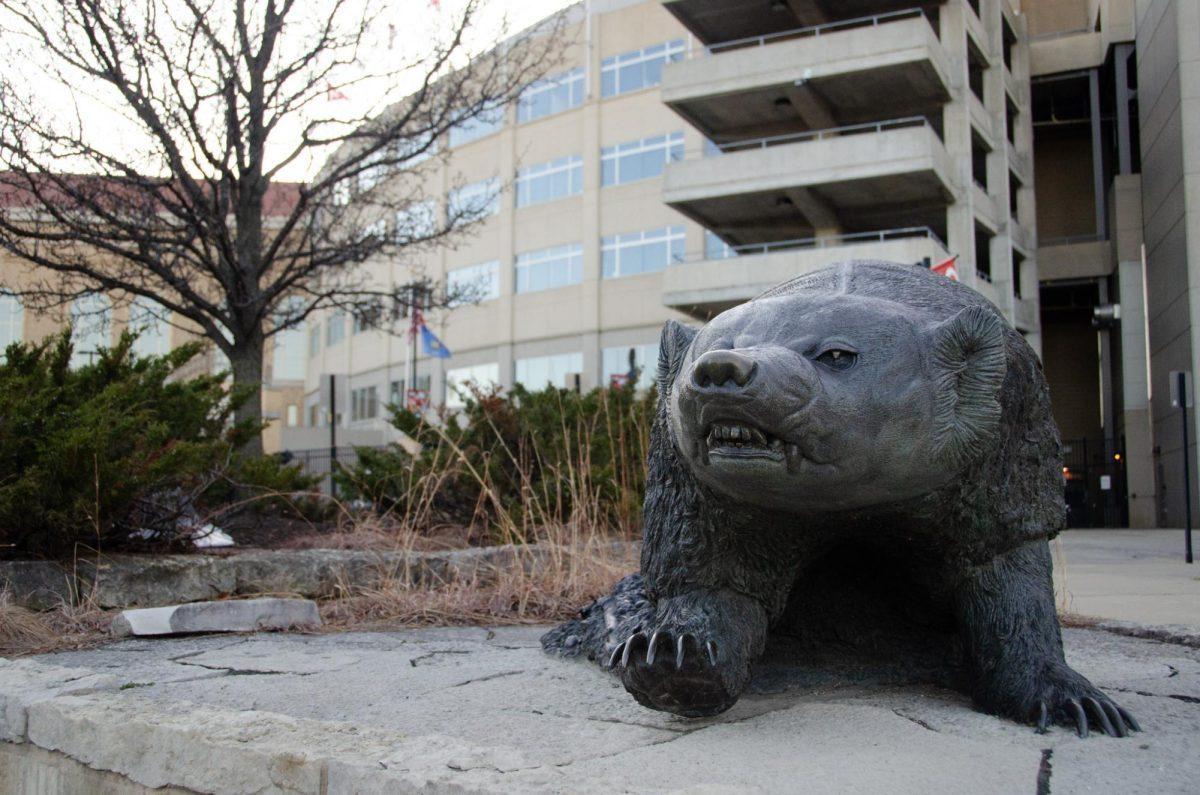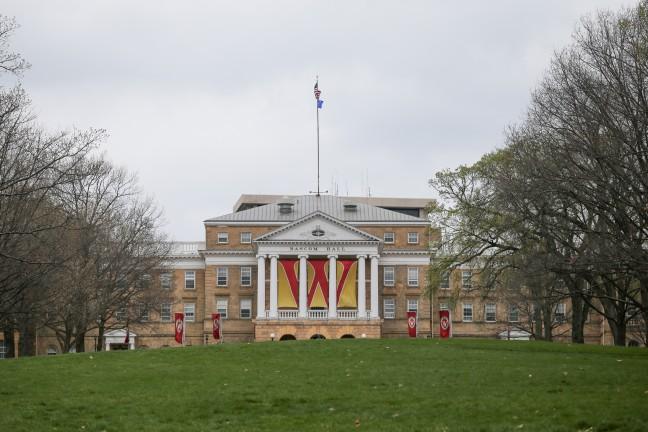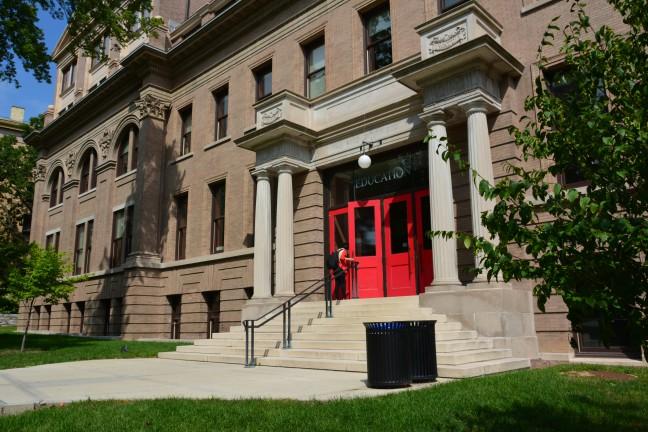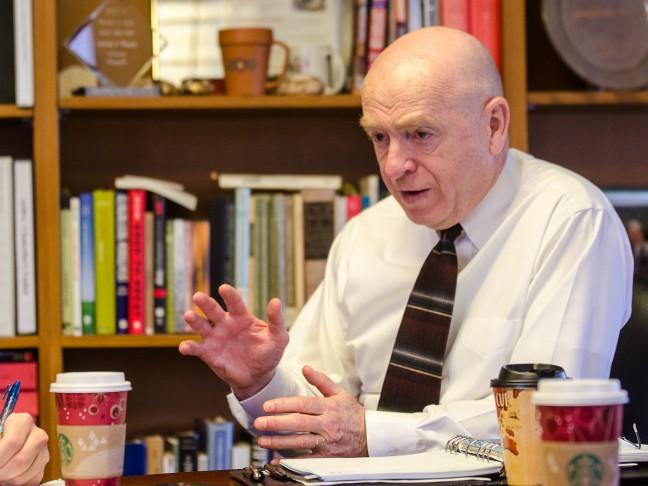The landscape of post secondary education in the United States has always been a diverse mix of private and public institutions, however recent controversy over for-profit institutions has revealed problems ranging from fraudulent recruiting tactics to criminal organizations operating across the globe.
For-profit colleges have been making headlines over accusations they are taking in students who have a poor chance of succeeding in school just to receive federal financial aid money as well as lying to potential students about job opportunities and how much debt they will be in after their education is completed.
Along with the for-profits, there are criminal organizations producing fraudulent degrees known as degree mills. Degree mills come in many different forms, but most sell a wide variety of degrees ranging from associate degrees all the way up to Ph.D’s, without offering any significant training or education.
John Wiley, the former University of Wisconsin chancellor, said there is a spectrum of how people in the U.S can receive post-secondary credentials.
“You have long established universities like the Big Ten schools and the Ivy League schools,” Wiley said. “Then you have the relatively newer private for-profits operating in pretty much every state, some of them doing a good job and some doing a terrible job giving everyone a bad reputation, and then you have these criminal activities (degree mills).”
These deceptive organizations may pose a bigger threat than just scamming students who are looking for legitimate degrees.
Noel Radomski, director of the Wisconsin Center for the Advancement of Post-secondary Education, said there are certain assumptions built into our education and economic system where employers and schools hold the assumption that college degrees and certificates are genuine.
“If the assumptions fall apart then all hell breaks loose,” Radomski said.
However, trying to regulate the for-profit schools and degree mills is difficult, and as one University of Illinois professor discovered, potentially dangerous.
Trouble at Saint Regis
University of Illinois physics professor George Gollin might seem like an unlikely private investigator, but through his research he helped catch and stop a criminal group that was running a fake college degree program that was making millions of dollars a year. For his trouble he and his family were harassed and threatened by the criminals running the operation.
Gollin said he first became interested in degree mills in 2002 when his computer lab and others at Illinois were being flooded by spam messages from a fake college offering an assortment of degrees online.
Gollin decided to call the company who was sending the e-mails and found out for just $2,000 dollars he could purchase a degree in engineering or if he did not like engineering they could offer him many more choices.
He became more concerned when he found out the “college” was also selling medical degrees.
“That worried me, and I started to collect the info in a more systematic way,” Gollin said. “I put the information (on fake degree programs) up on the web.”
In his research Gollin discovered an online college, called Saint Regis, which appeared to be an accredited university out of the country of Liberia. Gollin said this intrigued him because at the time Liberia was in the middle of a civil war.
After some investigating he realized the website was offering to sell a wide variety of degrees.
“They would offer degrees in anything really… Ph.D’s masters, bachelors; they sold about 10,800 degrees (before being shut down),” Gollin said. “You asked for it, and they would sell.”
Gollin said he posted this information to his website, along with the other information on degree mills he had been compiling. However, a short time later the university received an e-mail from people claiming to be Liberian officials threatening to sue if they did not remove the information.
The threat really upset Gollin, and he said put him on them on his radar even more.
Gollin said he uncovered the “college” was actually based out of an office in Washington, with a post office box in Idaho. The group of criminals running the website had sent someone to Liberia to bribe government officials into saying they were a school in the country.
He added in addition to running Saint Regis the criminals would also print degrees in the names of fake universities and real universities as well, including the University of Illinois at Chicago.
In the three and a half years the group was operating they made around $2.3 million dollars a year, according to Gollin.
While Gollin was investigating them, the criminals sent threats to Gollin and members of his family and even tried to prevent him from obtaining a seat on the Council For Higher Education Accreditation.
“Yeah, they are nasty buggers,” Gollin said.
Degree Mills
Degree mills are nothing new, according to a report on CHEA’s website there have been reports of fraudulent degrees from the late 19th century.
Gollin said even though some of the mills have been taken down there are still plenty operating today.
“It’s like the game of whack a mole, you knock them down one place, and they pop up in another,” Wiley said.
According to a 2004 report from the Government Accountability Office, 463 federal employees had degrees from fake universities out of just a few government agencies. The report also said this was probably not the full scope of the problem.
For Profits
The for-profit colleges, like the University of Phoenix and the Kaplan System have been around for many years, but have grown recently due to a rising demand for college graduates in the country and expanded federal financial aid programs.
Radomski said the for-profit institutions took notice when President Barack Obama raised the amount of federal financial aid available to students which has helped fuel the growth in the sector.
From the 1998-99 to 2008-09 enrollment in for-profit schools increased 236 percent, compared to 20 percent at other kinds of colleges in the same time, according to a report released by the Education Trust organization.
The report also states the average for-profit school obtains 66 percent of its total revenue from federal aid funds, with 15 percent of for-profits counting on federal aid for more than 85 percent of their revenue streams.
Also contributing to the growth of the for-profits is the increase in the number of adult and non-traditional students looking to go back to school due to the poor economy, Radomski said.
He said public and private institutions are geared towards traditional students and do not always meet the needs of nontraditional students. He added the problem is compounded by the fact many two year schools are at capacity and cannot take on more students.
The boom in the number of for-profits, along with the increase in federal financial aid, is very attractive to investors looking to make large profits, Wiley said.
“It is very tempting to cut corners and do thing things that are not in the best interest of the students and the public. I’m not saying that they all take those shortcuts,” Wiley said.”But the temptation is always there, and if your job depends on meeting quarterly profit goals and the investors are constantly banging on you to make more profit, you find ways to do that.”
Wiley said some of the for-profits go out to soup kitchens, unemployment lines and homelessness shelters to try and recruit people to come to their schools and get federal financial aid.
According to the Education Trust’s report only 22 percent of students earn degrees from a for-profit school in 6 years, compared to 55 to 65 percent from most public and private institutions. The report says some of the students who start at for-profits transfer to other schools; however the other colleges deal with this issue as well.
Problems in regulation
Many of the degree mills and for-profit colleges span across different states in the country, which leads to difficulty in trying to regulate and prosecute them if they are committing crimes.
The trouble in regulating, Wiley said, comes from the fact the U.S Constitution does not mention education as a federal power, so it gets delegated to the states.
Gollin said several states have passed laws making degree mills illegal, including Wisconsin, but progress is slow in other states.
Last spring the state legislature passed a law that banned online unaccredited schools from using the words, Wisconsin, state, college or university on their diplomas.
Often times when a state tries to come down on an illegal degree mill they just move to another state with less strict regulation, Gollin said.
The criminals behind the Saint Regis scam were caught and charged with mail and wire fraud, but not with creating fake degrees because there is no federal law against it.
“I think we need to define what is illegal and what is not, and we need a criminal statute (making mills illegal),” Gollin said.
Another problem, Wiley said, is many of the schools and degree mills have an excess of money, so if states threaten to regulate or process them they just sue, and the states get bogged down in costly lawsuits.
The explosion of the internet and online colleges and degree programs that can be accessed by anyone has also helped increase the troubles with regulation, especially in states with older laws.
Radomski said Wisconsin’s education laws date back to the mid 1970s, so they do not cover important questions such as: does a college from out of state serving Wisconsin students online have to be accredited in the state?
Solutions
There appear to be no easy fixes for getting rid of degree mills and finding out which for-profits are operating in the best interests of students or operating illegally, but accreditation is still the consumers best defense.
Gollin said students who are looking at a school and are suspicious should go online to CHEA’s website and check to see if it is on their list of accredited schools.
Wiley said accreditation is supposed to the mark that a school is a legitimate entity.
“Well its suppose to be the USDA stamp of approval like you see on a steak that it’s been inspected and found to be good for you, or at least it won’t kill you,” Wiley said.
However, Wiley said accreditation is not perfect, citing the fact that Kaplan is accredited but is still under investigation for fraudulent practices.
With the shift in political power going over to the Republicans, Radomski said, he does not think there will be much in the way of new regulation over for-profits. However, he did say you can already see the market working as many of the stocks for the for-profits have gone.
“Adam Smith was right about the invisible hand,” Radomski said.
Wiley said he hopes once investors feel they can no longer make large profits by investing in these kinds of schools the shady ones will go out of business.
“The investors that saw this as a good profit making opportunity will start getting [leery] of investing in for profit colleges,” Wiley said. “There money source will dry up, and a lot of these schools will probably end up going out of business, the ones operating on the shady sense of the law.”
Correction: Due to a reporting error, the copy of this story appearing in the Wednesday, Dec. 1, paper mistakenly referred to the Government Accountability Office as the Government Accountability Board. We regret the error.





















